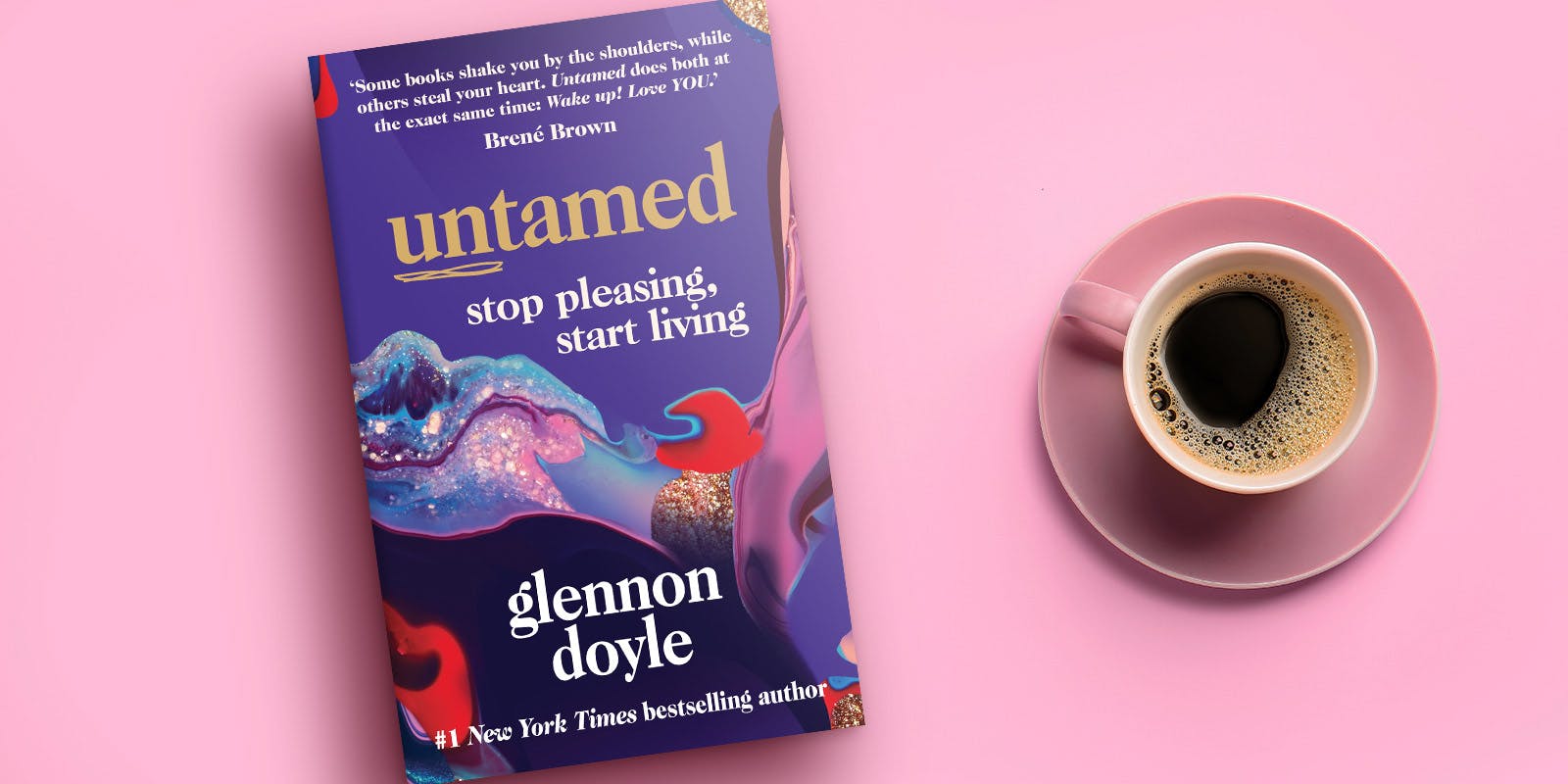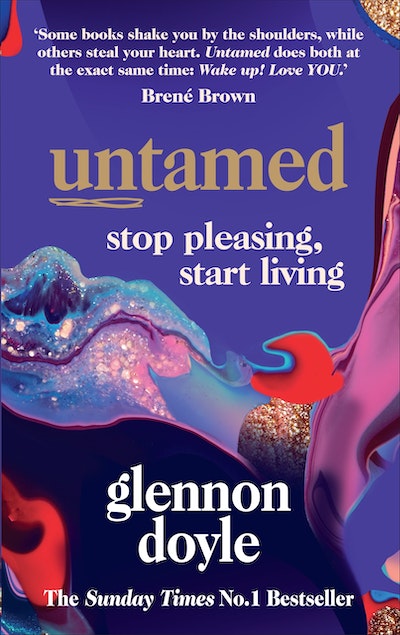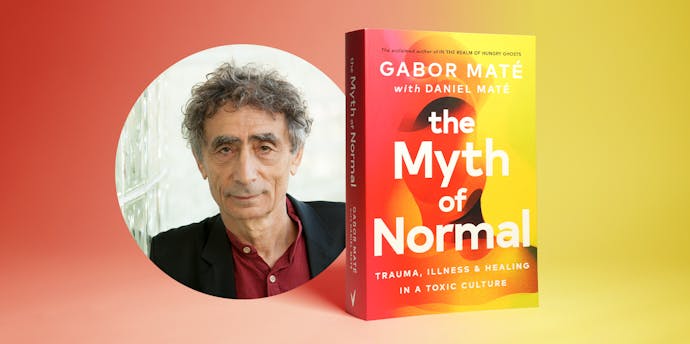Take your book club on a journey of self-discovery, with Glennon Doyle’s famed Untamed.
Glennon Doyle opens Untamed with the story of Tabitha, a caged cheetah she encounters on a family trip to a safari park. Glennon watches Tabitha stalk the periphery of the field where she’s kept captive and imagines Tabitha’s inner doubts, and her quick dismissal of those internal questions. Glennon imagines Tabitha saying to herself, ‘I should be grateful. I have a good enough life.’
If you’ve ever wondered what a ‘good enough life’ means to you, or if you’ve ever found yourself silencing your own inner voice, Doyle’s Untamed is a book worth reading (and sharing with your book club). Here are some notes to get your reading group discussion started.
Discussion points and questions:
- When Abby tells Glennon’s parents about her wish to marry their daughter, Glennon’s mother says, ‘I have not seen my daughter this alive since she was ten years old.’ This prompts Glennon to ask: ‘Where did my spark go at ten? How had I lost myself?’ She soon recognises that at age ten, she began to let go of her true self to be the ‘good girl’ society expected her to be. She writes, ‘I was wild until I was tamed by shame.’ How would you describe yourself as a young child? Does a particular age in your childhood stand out as pivotal turning point for you?
- Glennon writes, ‘We forgot how to know when we learned how to please.’ Does this feel true to you? Do you ever find yourself ignoring your own instincts in favour of pleasing others? When? Why?
- Glennon describes her daughter Tish as ‘sensitive’. What does that mean? Glennon writes that Tish’s sensitivity is her ‘superpower’. In what ways does her sensitivity make her powerful? In what ways could her sensitivity be perceived as inconvenient?
- Glennon describes building a life of her own by ‘resurrecting the very parts of [herself she] was trained to mistrust’: her emotions, her intuition, her imagination, her courage. According to Glennon, ‘those are who we are’. What makes you who you are?
- Glennon says that the first time she saw Abby, she heard three words: ‘There She Is’. At first Glennon thought those words had come to her from outside herself, but later she realises they came from within. The voice she heard that day was her own, telling her ‘Here I Am. I’m Taking Over Now’. When has your inner voice allowed you to make important decisions? Describe how that felt.
- Glennon describes befriending Elizabeth Gilbert and discovering ‘a new friendship memo’ – one with ‘no arbitrary rules or obligations or expectations’. Discuss the friendships in your life. In what ways do they operate by ‘arbitrary rules’? How do those rules serve you and your friends? If you were to rewrite the rules of some of your friendships, what would the new rules be?
- Glennon writes that ‘the end goal of every patriarchal culture is to convince women to control themselves.’ What messages have you received from your culture – messages from parents, friends, childhood stories, advertisers, religious groups, and politicians – that try to convince you to control yourself?
- Glennon recalls watching a nature survival show and learning about a Touch Tree, which is ‘a recognisable, strong, large tree that becomes the lost one’s home base.’ What does this metaphor of a Touch Tree mean to you? When Glennon says, ‘I am not the woods. I am my own tree,’ what does she mean?
- Glennon compares hard feelings – anger, heartbreak, and grief – to the delivery of a package containing new information about herself. She writes that the ‘reward for enduring hard feelings [is] finding [her] potential, [her] purpose, and [her] people.’ What have you learned about yourself through hardship?
- Glennon says that heartbreak is ‘magic’ and that ‘the thing that breaks your heart is the very thing you were born to heal'. What breaks your heart? What does that heartbreak reveal to you about meaningful work, activism, or opportunities for volunteering?
- Glennon writes that the truth of her 30s was: ‘Stay on your mat, Glennon. The staying is making you.’ And that the truth of her 40s is: ‘I’m made’. What did she learn in that decade? Can you look at different periods of your own life and identify phases of growth? How did they change you? Do you feel ‘made’? Why or why not?
- Throughout Untamed, Glennon returns to the image of water and metaphors of fluidity. She says that ‘Love is a river’; ‘Faith is water. Sexuality is water’; and ‘You are the sea’. Why do you think this water imagery is so important to Glennon? What does she mean by ‘stay fluid’?













